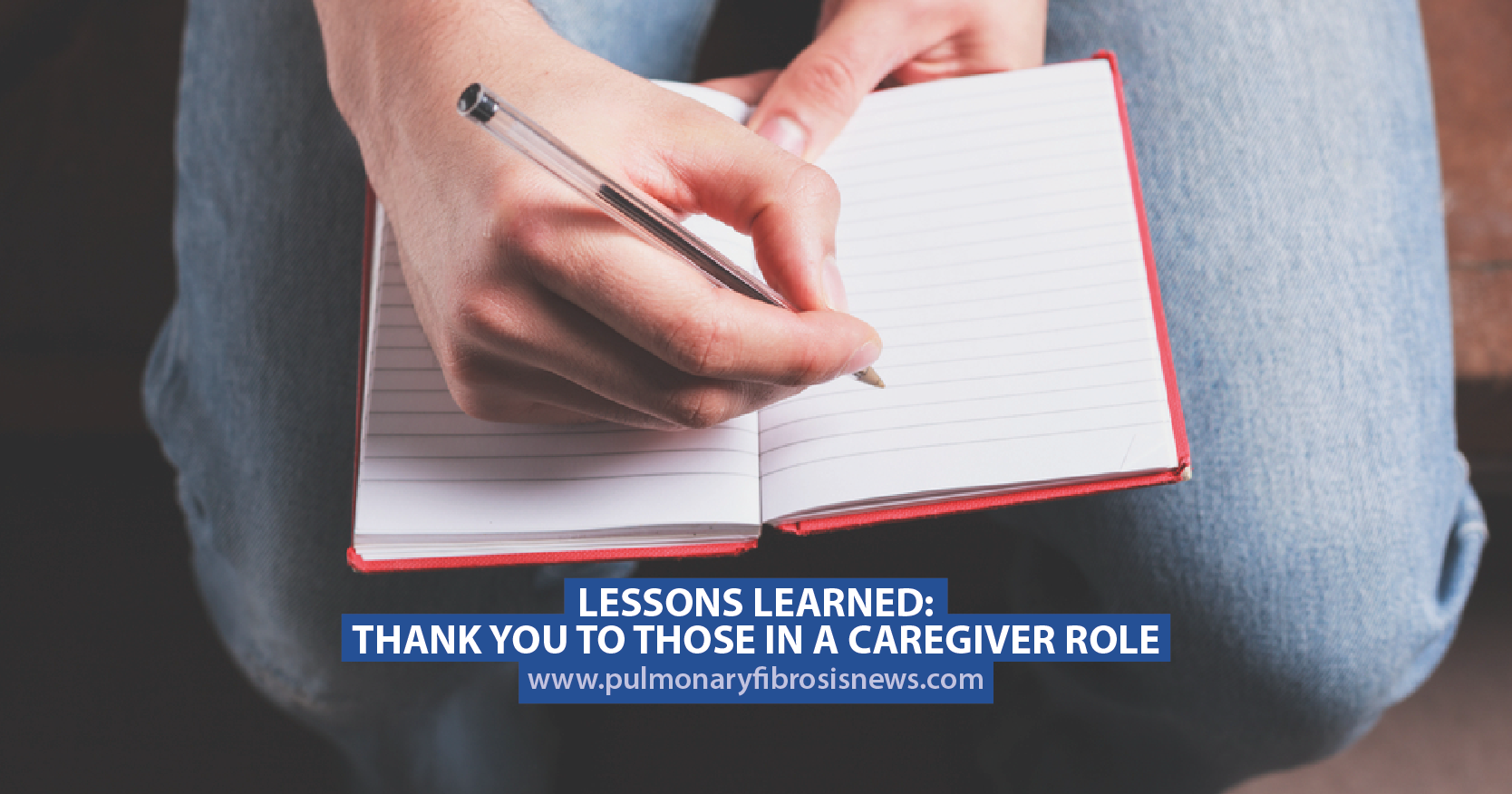-
Lessons Learned: Thank You to Those in a Caregiver Role

Caregiving is so much more than physical — it also takes an emotional and mental toll on those who are in this role. If you have read other columns and clips published through Pulmonary Fibrosis News, you have likely come across messages of gratitude from columnists to their caregivers.
It was only recently that I truly developed an understanding of what it’s like to be a caregiver to someone going through a tough time. A friend of mine was diagnosed with an autoimmune disease that affects her lungs and ability to breathe. Though I was not responsible for her physical needs, I learned a lot about how difficult caregiving can be. As a result, I am even more thankful for caregivers who I believe have one of the toughest jobs in the world.
While the doctors were trying to come up with a final diagnosis for my friend, they were also investigating several other explanations about what might be causing her shortness of breath. They were looking at things like lymphoma and tuberculosis, and while neither was a likely diagnosis, it was still scary. For nearly two weeks, we waited for the results, and I learned a lot about being a caregiver.
While there are hundreds of other reasons to be thankful for caregivers, below are a few I became aware of as a caregiver:
Mental worry is exhausting.
As if physically caring for someone with a chronic illness isn’t tiring enough, there’s the mental exhaustion. Worrying and waiting causes the mind to wander to all the possibilities, and it takes a lot of patience and courage to set aside those worries and demonstrate bravery (which many of you do) in front of patients.Emotions run high with the unknown.
Not knowing the result of a test or scan is arguably one of the most anxiety-provoking times for both a patient and caregiver. While waiting for my friend’s results, I made an effort to put on a strong face, but I was scared for her. Caregivers often hold fear for both the patient and themselves, and yet are still hopeful for the best possible outcome while in the patient’s presence.Waiting is just as tough on the caregiver as on the patient.
Even though all test results will be about the patient’s physical status, waiting for those results is just as tough on the caregiver. Thinking about how a diagnosis could impact your life with the patient, including potentially shortening your loved one’s life is overwhelming — and waiting for that news is emotionally exhausting.Feeling helpless is the worst feeling in the world.
Many people can attest to this, whether or not you’re a caregiver or patient. That said, when your loved one is hurting, scared or upset, or when their physical ability is compromised and you can’t do anything to alleviate their pain, being helpless is the worst feeling in the world. In those moments of waiting when my friend was scared, there was nothing I could do or say to help her feel better. Sometimes just being present and acknowledging that there is nothing you can do to help, but that you are there to support them anyways, is the best thing you can do.It is likely that no one assumes caregiving is an easy role, however, I didn’t realize just how difficult of a role it can be even when the caregiving is not physical in nature. Thank you caregivers, patients are so very grateful.
What else have you found challenging about caregiving? Please share your thoughts here.
Sorry, there were no replies found.
Log in to reply.
